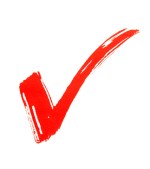Is Your Resume Hurting or Helping You Get That Interview?

NEVER – I mean NEVER – use columns or tables.Most companies and many recruiters use databases to keep track of applicants. When you apply online or via email to a potential employer, your resume gets “parsed” into a database. If you use a table or columns in order to make things line up and to avoid a struggle with spaces and tabs, it will come out looking very strange on the screen. Borders are inserted – lines show up that won’t go away – and spacing can look weird. So while it might be quick – all of those easy-to-use resume templates in Microsoft Word decrease your chances of getting called for an interview because most of them use tables or columns.
Do not be a jack of all trades!Make it abundantly clear to anyone who reads your resume what you do and what type of job you want to find – HAVE AN OBJECTIVE. And I DON’T mean the very vague “I’d like to find a position where I can use my experience and education to help a company grow and prosper and to conquer war and make the world a better place to live for …..” This is NOT a workable objective. Say “I’m looking for a Business Development role… OR I want a Senior Project Management position…”
It does not help your case if you have been in sales and marketing and project management and can do just about anything that an employer may ask of you. I’ve never seen a job description that says “we want to hire a person with all kinds of different experience who we may or may not need in the future…” FOCUS on what you want and state it clearly. If you do have different skill sets, then make several different versions of your resume with specific objectives for each position.
Use bullet points.The person who screens your resume – on average – does so in 10–15 SECONDS. If you don’t grab their attention in that time, they will not read further. Bullet point your:
- education
- relevant experience
- accomplishments
- skills
Bullets make it much easier to quickly review and find the pertinent information needed in order to move you to the next step.
Don’t force all your information on one page.If you have been in the work place for more than 10 years, you may very well have a two page resume. That is fine. What is not OK is to decrease the font – increase the margins and force everything into a single page.
And speaking of fonts – DON’T mix them!It is very difficult on the eyes – and it is very distracting – to have your name in one font – the places you work in another and the description of what you did in yet another. The same rule goes for bolding and italics. Use them sparsely and occasionally. Special effects are not special if used too frequently.
Don’t capitalize your name.Again when your resume gets parsed into a database, any correspondence from the recruiter/HR person will pull the information from your resume. So an email to you will say Dear JAMES, if you use caps. Furthermore, many people in this age of email will interpret a word in all caps as yelling.
Please don’t name your resume – resume.doc.Everyone who receives your resume will have their own preferences, but remember back to the old days of file cabinets. Use your last name then first name and then any date or other identifying information you want. Example – Johnson, Sandy resume 01-2011.doc OR Johnson, Sandy cover letter 01-2011. You get the idea. Keep your recipient in mind and remember they receive a LOT of resumes and if we filled them by first name we would have to look through many Sandy’s to find you.
If you are sending your resume by email – put your BRIEF cover letter in the body of the email.If you can grab enough attention in your email to get that attachment opened, you want them to see your resume – not a cover. OR better yet, forget the traditional cover letter and just make your email short and compelling.
Over the years, our team members have noticed that these pointers work for impressive and winning resumes. If you have any questions about how to formulate a resume, please do not hesitate to contact me at the Davidson Group. I am interested in your success!

